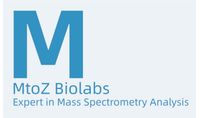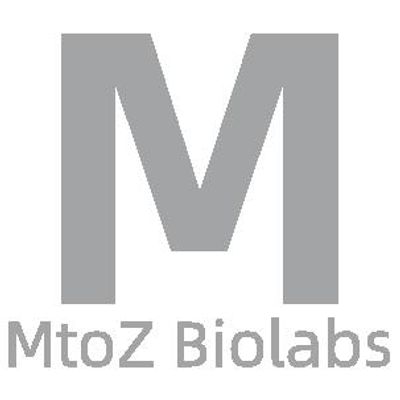

- Home
- Companies
- MtoZ Biolabs
- Services
- MtoZ Biolabs - Yeast Non-targeted ...

MtoZ Biolabs - Model yeast-untargeted-lipidomics -Yeast Non-targeted Lipidomics
Yeast is extensively utilized in advancing research on transcriptomics, proteomics, and interactomics. The branch of lipidomics that studies lipids in yeast is referred to as "Yeast Lipidomics." Yeast predominantly contains fatty acids (FAs) with 16 or 18 carbon atoms, which include about 20% saturated and approximately 80% monounsaturated FAs. Unlike mammalian cells, yeast contains monounsaturated fatty acids with double bonds only between C9 and C10, significantly reducing the complexity of the acyl chain combinations in yeast lipids. Saccharomyces cerevisiae serves as a widely used model organism for studying the physiology and molecular events in eukaryotic cells. It features a conserved network of lipid metabolic pathways. Compared to other eukaryotic cells, it has a relatively simple lipidome, containing around 150 types of lipid molecules identified so far.
Differences in lipid metabolism between yeast and mammals include the primary sterol; yeast produces ergosterol, not cholesterol. This model system provides invaluable insights into the regulation of lipid synthesis, transformation, localization, and degradation. Yeast cell membranes are particularly sensitive to various stresses, including D-limonene, salinity, hypoxia, and nutritional deficiencies. Alterations in the membrane lipidome are believed to be crucial for the stress response mechanism.
Advancements in mass spectrometry have enhanced the sensitivity and accuracy of the comprehensive analysis of the yeast lipidome. The key technologies employed include mass spectrometry (MS), gas chromatography (GC), high-performance liquid chromatography (HPLC), liquid chromatography-mass spectrometry (LC-MS), and GC-MS. Integrating chromatographic techniques with MS significantly expands the scope of lipid analysis. LC-MS, as one of the widely used analytical techniques in yeast lipidomics, facilitates both qualitative and quantitative assessments of various lipids, such as phosphatidylcholine (PC), phosphatidylethanolamine (PE), phosphatidylinositol (PI), phosphatidylserine (PS), and phosphatidic acid (PA).
MtoZ Biolabs offers rapid, reliable, and cost-efficient non-targeted lipidomic analysis services for yeast, leveraging a highly stable and sensitive platform for lipid separation, characterization, identification, and quantification in conjunction with LC-MS.
MtoZ Biolabs is an integrate contract research organization (CRO) providing advanced proteomics, metabolomics, bioinformatics, and biopharmaceutical analysis services to researchers in biochemistry, biotechnology, and biopharmaceutical fields. The name of MtoZ represents “mass to charge ratio” in mass spectrometry analysis, as most of our services are provided based on our well-established mass spectrometry platforms. Our services allow for the rapid and efficient development of research projects, including protein analysis, proteomics, and metabolomics programs.
MtoZ Biolabs is specialized in quantitative multiplexed proteomics and metabolomics applications through the establishment of state-of-the-art mass spectrometry platforms, coupled with high-performance liquid chromatography technology. We are committed to developing efficient, and effective tools for addressing core bioinformatics problems. With a continuing focus on quality, MtoZ Biolabs is well equipped to help you with your needs in proteomics, metabolomics, bioinformatics, and biopharmaceutical research. Our ultimate aim is to provide more rapid, high-throughput, and cost-effective analysis, with exceptional data quality and minimal sample.
Email: marketing@mtoz-biolabs.com
